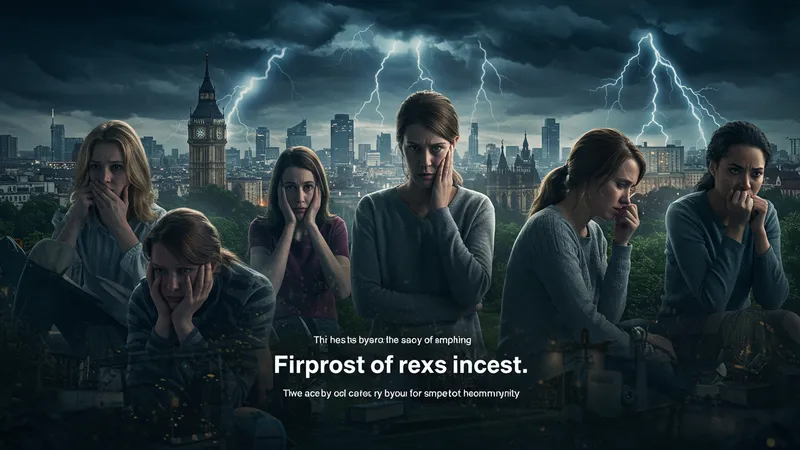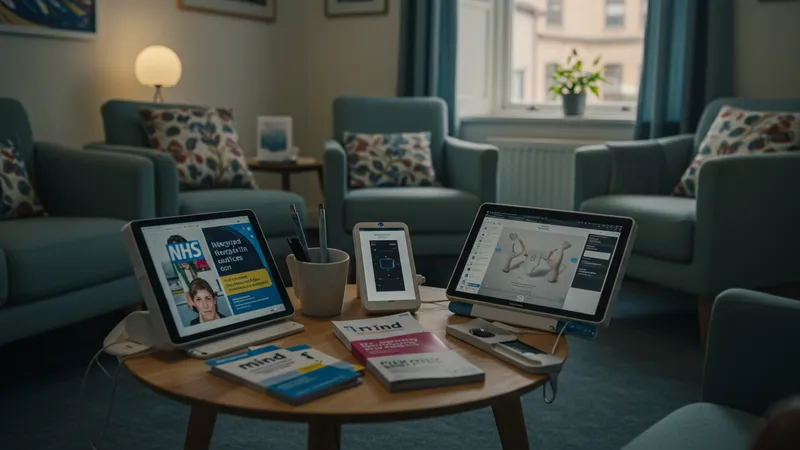

Anxiety is a natural emotional response that everyone experiences at some point, often triggered by stressful events or uncertainty. However, understanding what anxiety truly is, how it manifests, and its various impacts can be far more complex. A comprehensive guide to anxiety unpacks the psychological, emotional, and social facets of this condition, breaking down why anxiety feels different for everyone and addressing its influence on everyday life in the United Kingdom. By exploring the core concepts of anxiety and navigating available support strategies, this guide aims to shine light on what can often seem like an overwhelming or confusing topic.
Unlike momentary nervousness, anxiety can become persistent, affecting thoughts, moods, and even physical health. In the UK, social attitudes towards mental health are changing, making it increasingly important to recognize the signs of anxiety and the varied ways it can present. This complete guide delves into the triggers, symptoms, and management practices for anxiety, helping individuals and those around them make sense of the experience in a well-informed and practical way.

One distinguishing feature of this guide is its emphasis on evidence-based support available within the United Kingdom. For example, the NHS Generalised Anxiety Disorder (GAD) Support system integrates easily with other NHS services, offering a consistent and trusted route for those seeking assessment or therapy. Access to these services is a cornerstone of effective anxiety management, especially for those unsure where to begin their journey.
Another notable resource highlighted is the availability of charitable support in the UK. Mind Anxiety Resources provides accessible information, opportunities for peer connection, and guidance tailored to a wide range of anxiety experiences. Mind’s digital tools and helplines are particularly valued by individuals seeking non-judgmental support outside a formal clinical setting.
Membership-driven platforms such as Anxiety UK offer exclusive access to in-depth resources, expert webinars, and discounted therapy. While not entirely free, the membership pricing is intended to maximize accessibility, ensuring members can benefit from up-to-date information and support networks relevant to their unique experiences with anxiety.
By exploring these support platforms and understanding how they integrate with the lived experience of anxiety in the UK, readers can grasp how both public and charitable sectors work in tandem to address mental health. The evolving landscape reflects broader societal recognition of anxiety as a legitimate, manageable challenge—one that responds best to informed action and connected support systems. The deeper details reveal even more valuable insights ahead as we examine the components of anxiety in everyday life across the United Kingdom.
Recognizing anxiety in oneself or others can often be challenging, as the symptoms are varied and sometimes misunderstood. Common indicators include persistent worry, restlessness, concentration difficulties, and a heightened sense of fear or anticipation even in the absence of immediate threats. In the United Kingdom, public health campaigns increasingly emphasise the importance of early symptom identification, with national surveys indicating that just over 8.2 million people are affected by anxiety disorders each year.

Physical symptoms are also widely associated with anxiety, such as muscle tension, difficulty relaxing, sweating, palpitations, and sleep disturbances. These bodily responses are normal reactions to stress but, when experienced over prolonged periods, can interfere with daily functioning at home, work, or school. Education about the physical side of anxiety helps people seek support sooner and reduces stigma about these experiences.
The distinction between generalized anxiety and other forms, such as panic disorder or social anxiety, is another key aspect frequently addressed by UK support organizations. Resources like Mind Anxiety Resources and NHS guides help individuals identify their symptoms and match them to appropriate support options, minimizing confusion and ensuring more relevant advice is available.
British cultural attitudes toward anxiety have shifted over the years, leading to wider acceptance that these experiences are not simply "worries to ignore" but real conditions that deserve understanding. Recent NHS mental health initiatives, for example, encourage open conversation about anxiety symptoms, breaking traditional taboos and making it easier to access support without fear of judgement.
The United Kingdom provides a robust network of professional support, integrating both the NHS and charitable sectors. Individuals experiencing anxiety can self-refer or be directed by general practitioners to NHS pathways like individual Cognitive Behavioural Therapy (CBT), group programs, or guided self-help. Wait times for these services vary by region but are gradually improving due to digital therapy options now accessible nationwide.

Charities including Mind and Anxiety UK strengthen the UK's mental health infrastructure by offering helplines, peer support groups, and community-based events that address anxiety. Their digital guides and virtual workshops enable individuals to engage with mental health professionals without needing referrals, extending the reach to those who might not otherwise use NHS resources.
One distinctive element within UK support is the blend of professional and peer approaches. Many people benefit from discussing experiences in moderated support groups or online forums provided by charities, sharing insights that reinforce a sense of belonging. The effectiveness of combining clinical intervention with peer-led understanding has been highlighted in studies by UK mental health authorities.
As conversations about anxiety become more normalized, workplaces and universities in the UK are offering access to confidential counselling, mental health first aiders, and stress reduction workshops. These professional support options emphasize prevention as well as intervention, aiming to keep anxiety from escalating and promoting overall well-being within British society.
Alongside professional support, self-help and digital tools have become essential in managing anxiety, especially in the context of busy modern lives. The UK leads Europe in digital health innovation, with services like the NHS Apps Library featuring regulated apps that target anxiety through education, relaxation techniques, and mood tracking. Popular self-help methods include mindfulness, guided journaling, and structured breathing exercises—routinely recommended by NHS practitioners.

Anxiety UK and Mind both offer free and paid resources for self-guided anxiety management. These range from downloadable activity packs to live online workshops, ensuring people have flexible options to suit differing levels of need. For many, digital platforms offer a sense of autonomy—a way to build coping skills at their own pace.
The rise of remote support has especially benefited rural and underserved communities across the UK, where traditional face-to-face services might be limited. Data from NHS Digital suggests that use of mental health apps nearly doubled in the past three years, indicating a shift towards technology-enhanced wellbeing initiatives. Quality assurance remains crucial, so users are advised to select tools included in the official NHS recommendations.
Many digital self-help solutions are integrated with live support options, creating hybrid pathways for anxiety management. UK offerings like SilverCloud and Beat Panic have strong user feedback, and are increasingly prescribed by NHS clinicians as supplementary tools. This approach broadens access and personalises support, making it easier for individuals to engage with strategies that align with their lifestyle and unique anxiety profile.
The significance of community and peer-led support in the UK’s approach to anxiety cannot be overstated. Charities and social enterprises facilitate support groups—both in person and online—where individuals can share experiences in a non-judgmental setting. This peer support fills gaps that might remain after clinical intervention, reinforcing a sense of connection and combating the isolation that anxiety can cause.
Recent policy initiatives in the UK have placed mental health at the forefront of public health agendas. The NHS Long Term Plan, for example, commits to expanding talking therapies and digital support, aiming to make anxiety services as accessible as those for physical health concerns. Schools are also implementing mental health education, offering early intervention to address anxiety from a young age.
Support networks are further strengthened by local campaigns that reflect the diverse needs of UK communities. Projects targeting specific groups—such as students, older adults, or ethnic minorities—ensure that anxiety resources are culturally relevant and sensitive to varied experiences. These efforts demonstrate a growing recognition of the impact that social context and identity can have on anxiety and its management.
Looking forward, ongoing collaboration between policy makers, health professionals, and grassroots organisations appears set to improve support for anxiety across the UK. As resources and understanding evolve, individuals and communities gain new tools to navigate anxiety, backed by a robust and responsive support system. This marks a promising shift towards a more compassionate and inclusive landscape for mental health well-being in Britain.